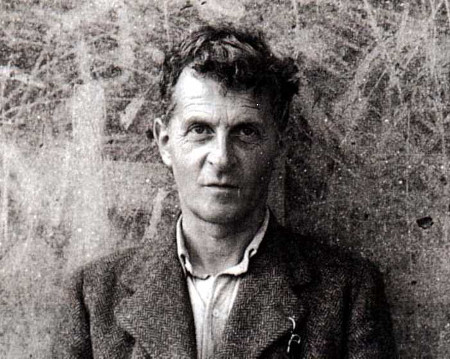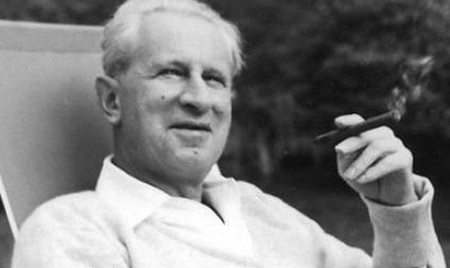A brief history of philosophy, part 13: continental vs. analytic philosophy

Bertrand Russell
Twentieth century philosophy split very roughly into ‘analytic’ (mainly in the English-speaking world) and ‘continental’ (mainly in mainland Europe), and was influenced heavily by contributions to the way we think about ourselves and the rest of existence from two non-philosophers: Freud and Einstein.
Sigmund Freud (1856-1939) said that some early childhood experiences are repressed by the ego into the unconscious. These experiences tend to be shameful, and tied to sexual identity in relation to the parents. These repressed memories are the cause of psychological problems. Treatment involves the bringing out of these repressed memories by talking. Freud was often criticised (notably by Karl Popper and Edward O. Wilson) because a lot of his ideas were untestable, and even when they were testable, he didn’t bother testing them and evaluating the data objectively. But he had a huge influence on the way we think. He was a giant in that respect – but has all the chattering, the looking inward, the therapising produced a better society, and better people? I think it has, yes. Think of modern, Western parenting in comparison to Victorian parenting. The effect on children has been enormous. It’s one of my main sources of optimism – that improved parenting is producing better people. Our political and economic systems are still pretty awful, but that doesn’t mean that the people within it are bad.

Albert Einstein (1879-1955) explained that: energy and matter are essentially the same; gravity can bend light; time slows down close to the speed of light; and there’s something called spacetime, and it’s curved. No criticisms for being unscientific this time, unsurprisingly, but with Einstein’s mind-boggling insights into the universe and Freud’s equally mind-boggling insights into humans, the rate of change in thinking at the beginning of the 20th century makes the beginning of the 21st century look pedestrian. Everything was much weirder than previously imagined, and quantum mechanics was making it appear weirder still. Old certainties fell by the wayside, and the meandering river of philosophy reflected this by splitting into a delta of divergent and usually contradictory ideas. Philosophers were no longer the giants they were.

Let’s return to analytic versus continental approaches to philosophy. Very generally, analytic philosophy is about taking things apart to look at them in detail; continental philosophy is about putting things together (synthesising) to look at the whole. Analytic leaned towards the logical, continental towards the political. There was overlap of course – Bertrand Russell (1872-1970) was political as well as logical for example, but you get the idea.
Continental philosophy’s roots were in Hegel’s overarching, all-encompassing approach to philosophy. Analytic philosophy developed much later, as a reaction to it – so for example, G.E. Moore (1873-1958) and Bertrand Russell preferred to move away from the all-encompassing to the parts, which could then be analysed in detail. Russell’s student Ludwig Wittgenstein (1889-1951) understood philosophy to be based on language. The final sentence of his Tractatus: ‘That of which we cannot speak we must pass over in silence’ means that language is used to make little depictions of things that are the case in the real world, and anything else is surplus to requirements – so out went God from analytic philosophy.

When using linguistic analysis to examine statements such as ‘God exists’ or ‘God is good’, the first task is to define ‘God’, ‘exist’ and ‘good’, which isn’t easy, and is perhaps impossible. So what can we know? Well, that depends on the definition of ‘know’. Really, we have to connect words to things in the real world, which can severely limit philosophical exploration. When it comes to using philosophy to decide the best course of action, linguistic analysis could be seen as somewhat pedantic and sterile. It’s great to define things carefully, but meanwhile things happen – and what are we going to do in response? The same can be said of logical positivism, which tightened up the nature of evidence so much that sticking strictly to its principles would mean that it would be difficult to gather evidence at all, even using the strictest of scientific methods.
As the century progressed, analytic philosophy developed a more scientific and anti-metaphysical way of looking at the world, including the philosophy of mind. The positivists’ position was that the scientific method is the best and maybe only way to discover the processes by which physical and human events occur. We have to be patient and to stop trying to explain things that are far beyond humans. With science and patience, we’ll be able to explain everything eventually as we slowly replace flimsy metaphysics with solid physics.

Postpositivists began to reject the idea that within science, there is a clear separation of observer and observed. They pointed out that the background, culture and value system of the observer can affect the results of his or her observations – but without rejecting the idea that objective reality exists. Meanwhile, continental philosophy developed in an existential, subjective, and relativist way, preparing the ground for postmodernism and a rejection of objective reality.
Two important branches of continental philosophy were existentialism and critical theory. The twentieth century had seen the first truly global wars, the atomic bomb, Nazism – the romantic ideals of integration with nature seemed foolish. Existentialists believed that reality is harsh, God is dead, we’re in control of our own destinies and there is no greater point or meaning to life. How we live our own life is a template for how we think life should be lived. The way we live carries responsibility, and how we do it is down to each individual. Jean-Paul Sartre (1905-1980) believed that there was no such thing as human nature – it’s up to us to make our own. This can create anxiety, depression or feelings of absurdity. We didn’t ask for this – we are ‘condemned to be free’. He wasn’t a nihilist however – life must have meaning, but we have to create it ourselves. We should live authentically, and not just conform and be part of the herd.

The critical theory of the Frankfurt School involved a critique of ideology and technology. The latter has been useful to humanity in helping to rid us of superstition, want and disease; but now it’s a tool of the rich, and causes more problems than it solves. It’s used only for making profit, rather than improving the lot of humanity. Herbert Marcuse (1898-1979) said that economic freedom is freedom from the economy, and political freedom is freedom from politics, which I think is genius. The left instinctively understand the first, the right the second, but for real freedom we need to keep both businesses and government as small as possible.
There are problems with both positivist and relativist positions in that taken to the extreme, they can both stifle true philosophical exploration; but perhaps there is a synthesis still to be had, incorporating the historical and political understanding of the continental with the rigour of the analytical.






